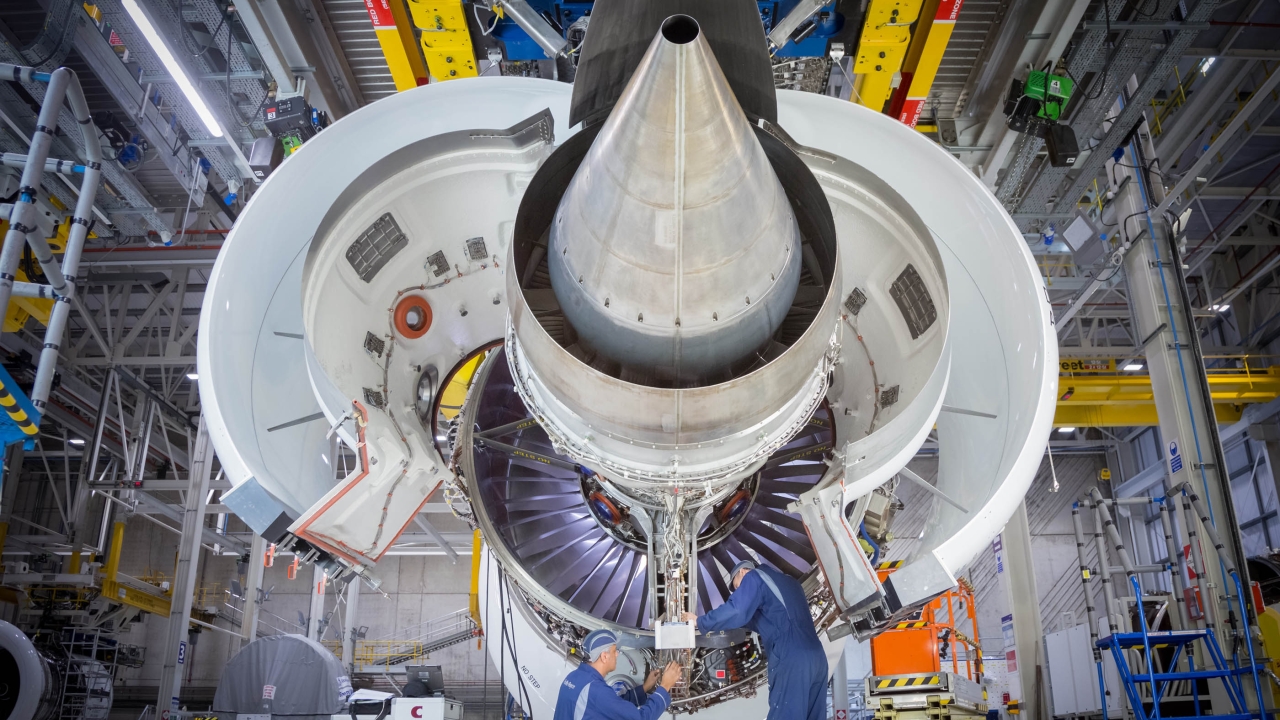Trent Family Evolution
Rolls-Royce is investing more than £1-billion in a programme to upgrade its Trent family of turbofan engines.

Image courtesy Rolls-Royce
Already the most successful engine family in the world, with more than 180 million flying hours accrued over nearly 30 years in service, the company believes that it can make the Trent family engines even better. And it is doing so. It is increasing the performance, reliability and efficiency of the four most recent members of the Trent family, by incorporating new technologies which resulted from Rolls-Royce’s development programmes, including the flagship UltraFan.
This upgrade programme includes the Trent 7000, already the very latest member of the Trent family having entered commercial service at the end of 2018. Rolls-Royce has developed and put into service a Durability Enhancement package for the Trent 7000, which exclusively powers the Airbus A330neo, the next generation iteration of the best-selling A330 twin-engine widebody airliner.
This Durability Enhancement features a new high-pressure turbine blade that more than doubles the Trent 7000’s time-on-wing for its operators, even in the harshest of environments. But more is to come. Rolls-Royce is currently developing a second package of ‘hot-section’ enhancements, which will provide even greater time on wing improvement, of as much as 30%.
From the very beginning of its service life, the Trent 7000 has delivered 14% less fuel burn per seat, in comparison to its previous generation of engine, the Trent 700 that powers the A330ceo. This results in $4 million in savings per aircraft per year. The Trent 7000 is also 6 dB quieter than the Trent 700. And the Trent 7000 has the highest bypass ratio (10:1) of any Trent engine.
The Trent 7000’s advanced core design features Blisks, to deliver the most advanced core dynamics. It also has state-of-the-art super-efficient hollow titanium fan blades. So, the engine delivers the highest levels of sustainable efficiency. Its three-shaft architecture, which is unique to Rolls-Royce, has been proven to deliver versatility and utilisation that is industry-leading. The result is that operators achieve maximum flexibility and value.
Further, the Trent 7000 is fitted with Rolls-Royce’s real-time Engine Health Monitoring (EHM) system. This monitors key engine parameters and transmits them to the ground using the aircraft’s ACARS system. This assists in predicting issues with engine components before they happen, helping to avoid unplanned downtime and operational delays. The company also has a ‘Lifing Insight’ service, which uses advanced parametric modelling and data from the individual engines themselves to calculate the optimum life of key components. This is particularly advantageous for high-cycle operations. It keeps the engines on-wing longer and holds down airline costs.
On top of all these benefits, Rolls-Royce can also provide a comprehensive service package for the Trent 7000, under its TotalCare package, implemented through its global network of Customer Service Centres. This transfers engine-time-on-wing and maintenance cost risk back to the manufacturer, thereby providing operational certainty to airlines. This premium service is an industry-leader and is supported by the data supplied by EHM.
As African air travel recovers, following the Covid-19 pandemic, and the continent’s airlines need to modernise and expand, Trent 7000 power is ideal for their needs. Greater efficiency, lower costs, optimised maintenance – these are the significant benefits of using the Trent 7000. And several African airlines are already benefitting from, or will soon benefit from, them, thanks to their orders for models of the A330neo family. These are Air Mauritius, Air Senegal, and Uganda Airlines, each of which already operate two A330neos. Joining them will be Air Algérie, and Air Côte d’Ivoire, which have five and two, respectively, of the airliners on order. Rolls-Royce is confident that the number of African operators will grow, particularly as the Trent 7000 is only going to get better and better.
And one more thing: the Trent 7000 family is also one of the beneficiaries of another Rolls-Royce technological advance, developed to help aviation address the challenge of climate change. Research and analysis, across the world, has shown that the quickest and simplest way to achieve this is for the sector to adopt sustainable aviation fuels (SAF), in place of conventional fossil fuels. Use of 100% SAF could reduce aviation carbon emissions by up to 80%. Rolls-Royce has successfully demonstrated that all its in-production commercial and business jet engines are compatible, under in-service conditions, with 100% SAF. Rolls-Royce is the first jet engine manufacturer to publicly confirm this. Many African countries have excellent potential for the large-scale production of feedstocks for biomass-based SAF.
Stay up to date
Subscribe to the free Times Aerospace newsletter and receive the latest content every week. We'll never share your email address.

